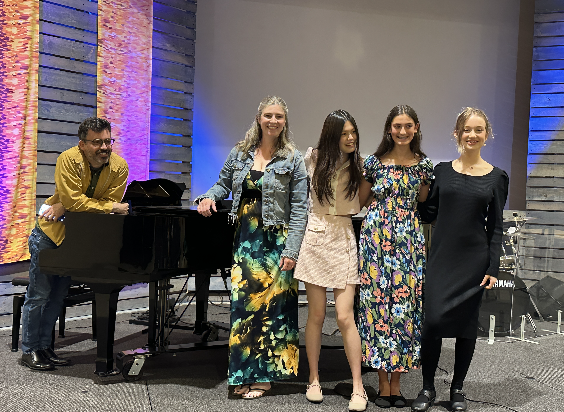The Real Cost of Music Lessons: What Are You Really Paying For?
When you start looking for music lessons, you'll see a range of prices. It’s easy to focus on the dollar amount per hour, but that number doesn't tell the whole story. The real cost of music lessons is an investment in so much more than just a weekly half-hour of instruction. It’s an investment in a skill, a passion, and a personal journey.
So, what are you really paying for? Let’s break it down.
1. The Teacher's Expertise and Experience
A music lesson isn't just a casual meeting; it's a transfer of knowledge from a seasoned professional. The price reflects your teacher's:
Education and Training: Years of rigorous study, a university degree in music, and specialized training to become a certified music instructor.
Time and Preparation: Your teacher spends time outside of your lesson planning your curriculum, selecting personalized repertoire, and creating exercises to help you overcome specific challenges.
Ongoing Professional Development: The best teachers are lifelong learners. They invest in workshops, masterclasses, and conferences to stay current with the latest teaching methods and musical trends.
You're not just paying for their time; you're paying for their years of dedication to their craft, ensuring you get the highest quality instruction possible.
2. The Value of a Personalized Learning Plan
Every student is unique. An effective lesson plan is never one-size-fits-all. A great teacher tailors the experience to your needs:
Your Pace, Your Goals: Whether you want to learn classical piano, jazz guitar, or play your favourite songs, your teacher will design a path that matches your pace and musical ambitions.
Correcting Bad Habits: A teacher can spot and correct technical issues with posture, hand position, or breathing before they become ingrained. This is something online videos or apps simply cannot do.
Well-Rounded Education: Your teacher ensures you get a balanced education that includes not just playing, but also essential skills like music theory, ear training, and sight-reading.
This personalized guidance ensures you build a strong, healthy foundation and avoid the frustration of getting stuck.
3. Access to a Supportive Community and Resources
When you enroll in lessons, you’re often joining a community, not just a class. Your fees contribute to:
Performance Opportunities: Recitals and showcases that give you a chance to share your progress, build confidence, and celebrate your hard work.
Studio Equipment and Space: The cost of maintaining a safe, clean, and well-equipped studio with high-quality instruments (like a well-tuned piano or professional-grade sound equipment) is built into the price.
Administrative Support: From scheduling and communication to curriculum materials and event planning, these services ensure your experience is seamless and stress-free.
4. The Lasting Benefits of a Music Education
Beyond the practical skills, the real value of music lessons lies in the lasting benefits. For every dollar you spend, you’re gaining:
Cognitive Development: Improved memory, focus, and problem-solving skills.
Emotional and Creative Growth: A healthy outlet for self-expression and a way to reduce stress.
Increased Confidence: The pride and satisfaction of mastering a new piece of music.
A Lifelong Skill: The ability to play an instrument is a gift that you will cherish and enjoy for the rest of your life.
When you look at it this way, the price of a music lesson is more than just a fee—it’s a valuable investment in personal growth, well-being, and a lifelong passion.
Ready to start your musical journey with us? Contact us today to learn more about our tailored lessons and discover the real value of a music education.



